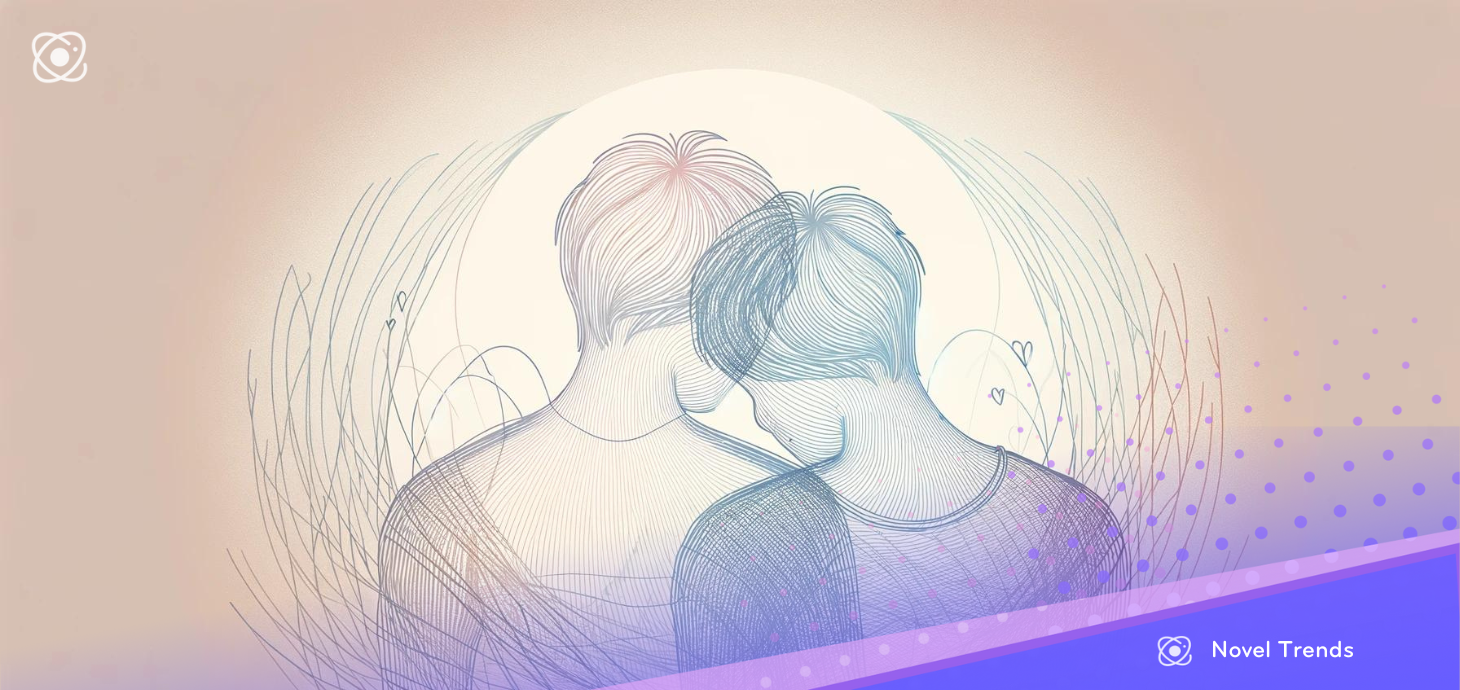Every region has its own way of defining certain passion. For China, its Danmei for Boy's Love. Let's look into what is Danmei and the history of BL in China!
What is a Danmei Novel?
Danmei, a term derived from the Chinese words 耽美 (dānměi), meaning 'indulging beauty,' is a genre of Chinese literature and media focusing on romantic relationships between male characters. This genre is predominantly created by and for heterosexual females, who find a unique appeal in these narratives. Danmei is often compared and linked with the female same-gender counterpart genre, bǎihé (百合, 'lilies'), which is less popular and known compared to Danmei. Bǎihé is an orthographic reborrowing of the Japanese word 'Yuri,' signifying female-female relationships in a similar vein to Danmei's male-male focus.
Danmei novels typically showcase a central romance between men, but the settings and themes can vary broadly. Many stories incorporate elements of traditional Chinese Wuxia (martial heroes) and Xianxia (immortal heroes) genres, as well as other popular genres like sports or science fiction. A common, though not universal, characteristic in these novels is the distinction between the two male protagonists into Gong (攻, 'attacker' or 'top') and Shou (受, 'receiver' or 'bottom') roles, akin to the Seme and Uke in Japanese Yaoi culture. However, recent years have seen a diversification in the portrayal of these roles, moving away from strict heteronormative dynamics to more varied relationship depictions.
Here are the names of BL roles in Chinese, Japanese and Korean:
| Role | Chinese | Japanese | Korean |
|---|---|---|---|
| Top | Gong | Seme | Tachi |
| Bottom | Shou | Uke | Neko |
Danmei Novel Suggestions
UniFans supports Danmei authors who face challenges in publishing their novels domestically. If you're a fan of BL, explore these unique Danmei stories, originally written in Chinese. The authors have authorized translations, inviting volunteers to share their works globally. Utilize UniFans' NSFW translator to assist in promoting their creations.
The History of Danmei
The roots of the Danmei genre can be traced back to the early 1970s with the emergence of the 'boys' love' (BL) genre in Japanese manga. This genre found its way to mainland China in the early 1990s, primarily through pirated Taiwanese translations of Japanese comics. The term Danmei itself is a reborrowing from the Japanese word 'tanbi' (耽美), which means 'aestheticism.'
The early online Danmei communities in China began as platforms for fans of Japanese BL. By 1999, these communities had evolved into hubs for both fanworks and original Danmei stories written by young Chinese women. The same year saw the launch of the first print magazine devoted to Danmei, 'Danmei Season,' which continued publication until 2013 despite operating without an official permit.
Commercialization and Mainstream Success
The early 2000s marked a significant shift from amateur fan-run websites to commercial online fiction platforms. Jìnjiāng Wénxuéchéng (晋江文学城, 'Jinjiang Literature City'), founded in 2003, became a pivotal figure in this transition. It amassed over 7 million registered users and hosted over 500,000 titles, becoming synonymous with original Danmei novels.
The late 2010s witnessed Danmei's breakthrough into broader audiences, both in China and globally. Adaptations of Danmei works, such as 'Guardian' (2018) and 'The Untamed' (2019), garnered billions of views and received international acclaim. These adaptations, despite being censored, marked a significant milestone in the genre's global reach.
Censorship in China
Despite its popularity, Danmei faces ongoing challenges due to China's stringent censorship policies, particularly those regarding pornography and homosexuality. Pornography is categorically illegal in China, and explicit Danmei literature often falls under this classification. While homosexuality has been decriminalized since 1997, the legal landscape remains vague regarding 'obscenity' and 'abnormal sexual behavior,' leaving even non-explicit queer literature at risk of censorship.
Impact on the Danmei Community and Media
The censorship has led to multiple crackdowns over the years, resulting in the closure of several Danmei websites and forums. Notable incidents include anti-pornography crackdowns in 2004, 2010, and 2014. In 2011, a danmei website hosting 1,200 works was shut down, and its founder was fined and imprisoned. In 2018, a Danmei author faced a 10-year prison sentence for a novel featuring homoerotic content, highlighting the severity of the legal repercussions in this space.
To navigate these restrictions, some Danmei communities have resorted to self-policing, with platforms like Jinjiang Literature City encouraging users to report explicit works. Additionally, many mainland Chinese Danmei authors circumvent censorship by hosting explicit content on Taiwanese literature websites. However, it is still difficult for these writers to make a living from their passion.
Where to Read BL Novels?
Unifans is the home of BL novel writers. At Unifans, we're dedicated to amplifying the voices of Chinese BL novel writers and bringing their captivating stories to a global audience. Choosing Unifans for your BL novel experience offers more than just access to a vast library of narratives. Unifans.io stands out as the sole platform for Chinese writers to monetize their work internationally, offering them a direct gateway to overseas donations.

Unifans is a membership sponsorship platform operated by an international team with an audience spanning the Chinese and English-speaking worlds. The platform welcomes creators of all kinds to join, and web novels are an important category within the content matrix.
立即注册 UniFans 引力圈, 轻松自由地创作吧!
立即注册 UniFans 引力圈, 轻松自由地创作吧!
nOTE:
Only team owners can access this feature. Please ask your team owner to access this feature.
RELATED CONTENT

UniFans Content Team
UniFans' content writing team is a group of creative storytellers dedicated to crafting engaging and insightful content for the digital world, specializing in topics that resonate with influencers and online content creators.








